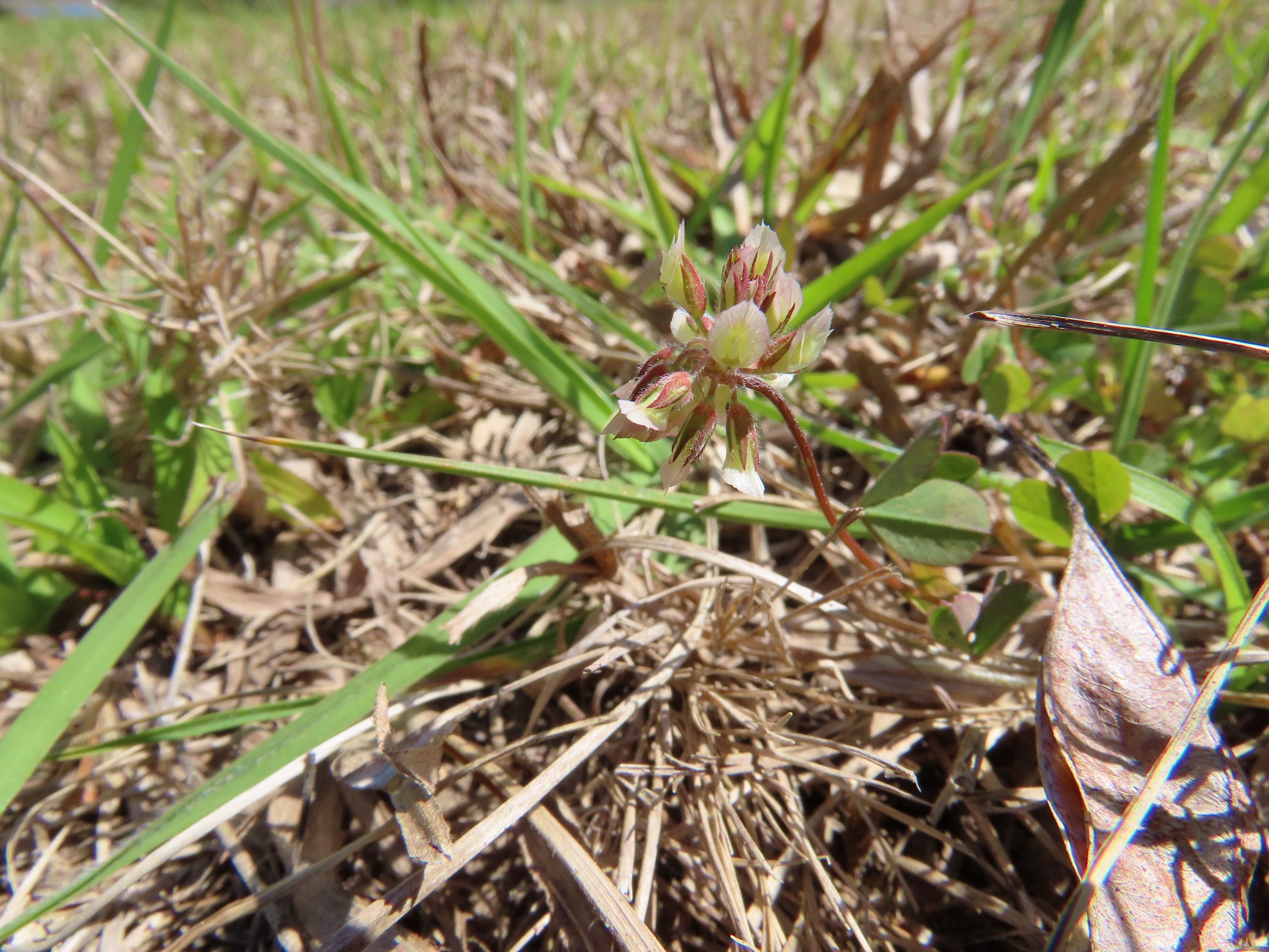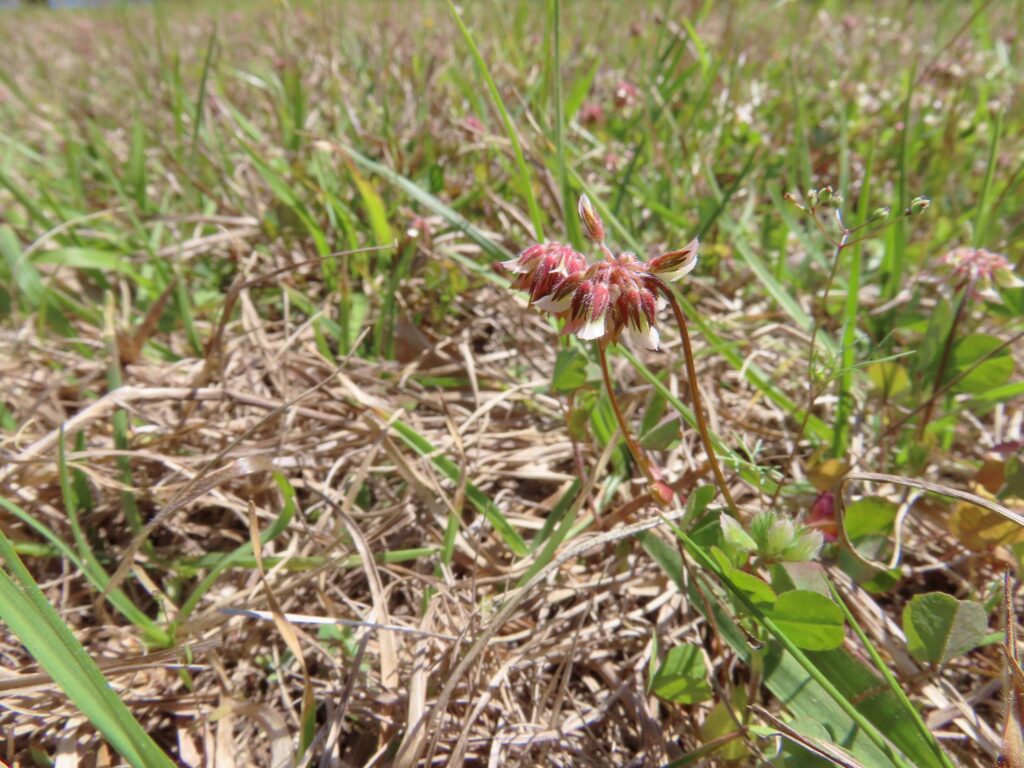
This week for Flora and Fauna Friday, we’re on the lookout for our local Clover, Carolina Clover (Trifolium carolinianum).
Carolina Clover is native to the southeastern United States and found around the coastal plain of South Carolina. In the Palmetto State, one can find over a dozen species of Clover, but only two of those are native. Of those two native species, only Carolina Clover is found on Edisto Island. Unlike its showy exotic cousins, such as Crimson Clover (T. incarnatum) and Arrowleaf Clover (T. vesiculosum), Carolina Clover flies completely under the radar, out of sight and out of mind. It’s a hard plant to spot, even when you know what to look for. Rather than bearing proudly colorful flower spikes and lushly dense, verdant green leaves, Carolina Clover hides amongst its surroundings. Its leaves are trifoliate, with three leaflets, like all our other Clovers, but its leaves are small, muted in color, and sparsely found between its weedy neighbors. Its flowers are tiny and delicate with pink-washed and white petals held limply in a drooping ball of rosy-red flower stalks, down-facing and hidden from sight. Their flowers peak in mid-spring, from April into May, and are visited by myriad native pollinators.

Carolina Clover is one of many of our native legumes that are supremely adapted to sand barrens. It can tolerate acidic and nutrient poor soils, drought, and fire. It also has many wildlife benefits, being a desirable browse to deer and rabbits, a pollinator plant sought after by bumblebees, and a host plant for several of our smaller butterfly species. Clovers, even some of the exotic ones like White Clover (T. repens), also have great value in replacing turf-grass in alternative lawns. As they are legumes, Clovers can fix nitrogen from the air. When they shed old leaves or are mowed, the nitrogen in their leaves is drawn into the earth where it supports healthy soil and the growth of its neighboring plants. So, unlike turf-grasses, Clovers and other native legumes can build soil without fertilizer, all while supporting native wildlife and pollinators. So consider letting Carolina Clover, and our other native legumes, have a home around your home!